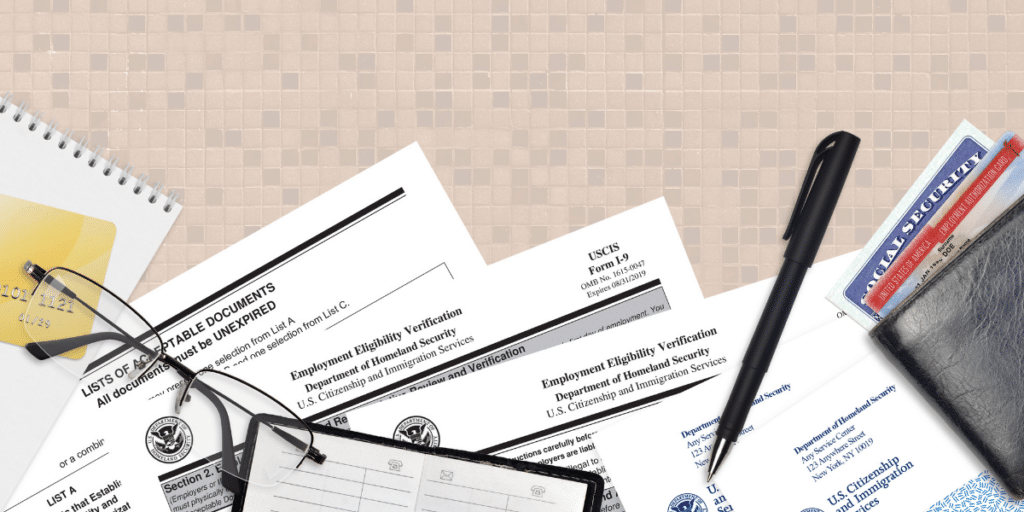The 2024 election brought significant shifts to U.S. immigration policy, many of which have already begun reshaping the landscape. For immigrants and their families, these changes come with both uncertainty and worry about the future. It’s important to stay informed about these updates, understand how they might affect you, and know what steps you can take to protect your rights. Let’s break down the key policy changes, tips to help you prepare, and how important it is to have the right legal support as we enter this new chapter of immigration enforcement.
Key Immigration Policy Changes in 2025
The new administration has announced plans to make major reforms to immigration laws. These changes are expected to have widespread implications, particularly during Trump’s first 100 days in office. Many of these changes are already taking effect or are expected soon. Here’s what we know so far about the most significant updates:
1. End of Prosecutorial Discretion by OPLA
Right now, the U.S. ICE Office of the Principal Legal Advisor (OPLA) has some flexibility in handling immigration cases. They can take personal factors, like family connections or humanitarian issues, into account. But the administration is pushing to remove this flexibility, signaling a move toward stricter enforcement. This could mean more legal action against undocumented individuals.
2. New Requirements for Asylum Applications
Applying for asylum in the U.S. might get tougher under a new proposed mandate. The rule would force people to apply from outside the country instead of crossing the border to seek asylum. If it goes into effect, we’d likely see a big drop in both asylum applications and approvals.
3. Heightened ICE Enforcement
ICE now has more power to detain and deport people suspected of being in the U.S. without proper documentation. There’s also a bigger focus on stopping immigrants at border crossings and conducting raids inside the country. These tougher measures could mean a big increase in detentions and deportations in the next few months.
4. Prosecution of Uncooperative Cities and States
The Department of Justice has been instructed to prosecute states, cities, and entities that refuse to cooperate with ICE. This policy change, referred to as targeting “sanctuary cities,” will likely put more pressure on local governments to comply with federal enforcement.
5. The End of Birthright Citizenship for Some Children
One of the most controversial changes is the proposal to end birthright citizenship for children born in the U.S. to undocumented immigrants. This decision questions long-standing interpretations of the Fourteenth Amendment and has left many families unsure about their children’s rights and futures.
While these developments represent only a portion of the anticipated policy changes, they reflect the administration’s stricter approach to immigration.
What Should You Do If These Changes Affect You?
Even though these policies aren’t fully in place yet, it’s important to stay ahead of the game. Here are a few steps you can take to be ready and keep yourself and your family protected.
1. Know Your Rights
Every person in the United States has certain constitutional rights, regardless of immigration status. If you’re approached by immigration authorities, you have the right to remain silent and to request to speak with an attorney before answering any questions. Being aware of your rights is one of the most powerful tools you have.
2. How to Invoke Your Rights
If authorities like ICE question your immigration status, here’s what you should do:
- Stay Calm: Don’t panic or run. Speak clearly and stay polite. You can use your phone to take photos.
- Say Less: You don’t have to share personal details or answer questions about your status. Say, “I choose to remain silent,” and stick to that.
- Don’t Sign Anything: Avoid signing documents you don’t understand. These can include forms that waive your rights. You can say, “I want to speak with an attorney first.”
- Ask for a Lawyer: If detained, request legal help immediately. If you’re arrested by police, you have the right to a government-appointed lawyer. However, if you’re detained by ICE or Border Patrol, the government isn’t required to provide you with an appointed lawyer. You may want to plan in advance and keep your lawyer’s contact information handy if you’re concerned about ICE.
- If ICE Comes to Your Home: ICE can’t enter without a warrant signed by a judge. Ask them to slide it under the door or show it through a window. If they don’t have a valid warrant, you don’t have to let them in.
- Carry a “Know Your Rights” Card: Print out or save a “Know Your Rights” card to your phone. You can show it to authorities instead of answering questions.
3. Keep Essential Documentation Handy
Have your key documents updated and ready to access if needed. This includes:
- Receipt Notices
- Approval Notices
- A copy of your green card or visa
- Other documents proving your legal status
It’s wise to store these securely and share copies with a trusted person. Avoid carrying your passport unless absolutely necessary—it’s better left in a safe place.
4. Consult with an Immigration Attorney Now
With the pace and gravity of these changes, having legal representation is more important than ever. Immigration laws are complex, and the recent changes show how risky it can be to handle them on your own. An immigration attorney can help protect you and your family, make sure your paperwork is done right, meet important deadlines, and prepare for any issues that might come up along the way.
Facing Immigration Changes with Dozier Miller Law Group
We recognize how stressful these changes can be for you and your loved ones. Even as some policies are debated and others start rolling out, the uncertainty alone can cause a lot of worry. That’s why we’re here to offer guidance and support.
At Dozier Miller Law Group, we’re dedicated to helping individuals and families prepare, protect their rights, and plan for what’s ahead. Whether you need assistance navigating the proposals or fighting for your case in court, we’ll stand by your side every step of the way.
Don’t face these challenges alone. If you’re concerned about how the 2025 immigration policy changes might affect you or your family, reach out to us today. Together, we’ll work toward the best possible outcome for you and your future.

CATEGORIES
Contact an Attorney
Our attorney offer specialized guidance and representation in a variety of practice areas.

REMEMBER: Always speak with your own attorney
This information is provided for informational purposes only; it is not offered as and does not constitute legal advice.
More Insights and Resources
Learn more about what to expect when facing a family law dispute in Charlotte, North Carolina from Family Law attorneys at Dozier Miller Law Group
Protect What Matters Most: Estate Planning for Every Stage of Life
Thinking about the future doesn’t always come naturally. Many of us get caught up in the day-to-day,…
Will a Separation Protect Me Financially?
Separation is never easy, especially when financial questions start piling up. Can you protect your savings? Will…
Practical Custody Arrangements for Families
Trying to figure out custody arrangements? You’ve probably come across terms like joint custody, primary custody, and…
Future-Proof Your Business Against Form I-9 Changes
Running a business is no small feat. Between managing your team, keeping customers happy, and planning for…
When Do You Need an Attorney for a Breach of Contract Case?
Contracts are the backbone of any good business relationship. They bring clarity, set expectations, and hold everyone…
Navigating Immigration Changes and Their Impact on Employment Law
No matter the size of your business, immigration law affects your ability to hire and retain the…
LGBTQ Families and Stepparent Adoption: What You Need to Know in North Carolina
As a family law attorney in North Carolina, I’ve seen many parents assume that their legal status…
What to Do When You Get a Bad Google Review
If you’re a Charlotte business owner, you know just how important your online reputation is. Around 98%…
Managing Your Immigration Status in 2025
The 2024 election brought significant shifts to U.S. immigration policy, many of which have already begun reshaping…
Plan Now for Summer Child Custody Arrangements
It might not feel like it, but summer break will be here before you know it. For…










